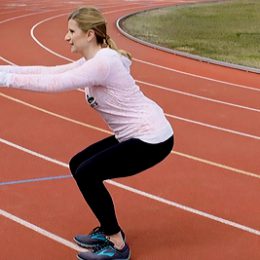The 20-Minute Have-a-Ball Strength and Cardio Circuit
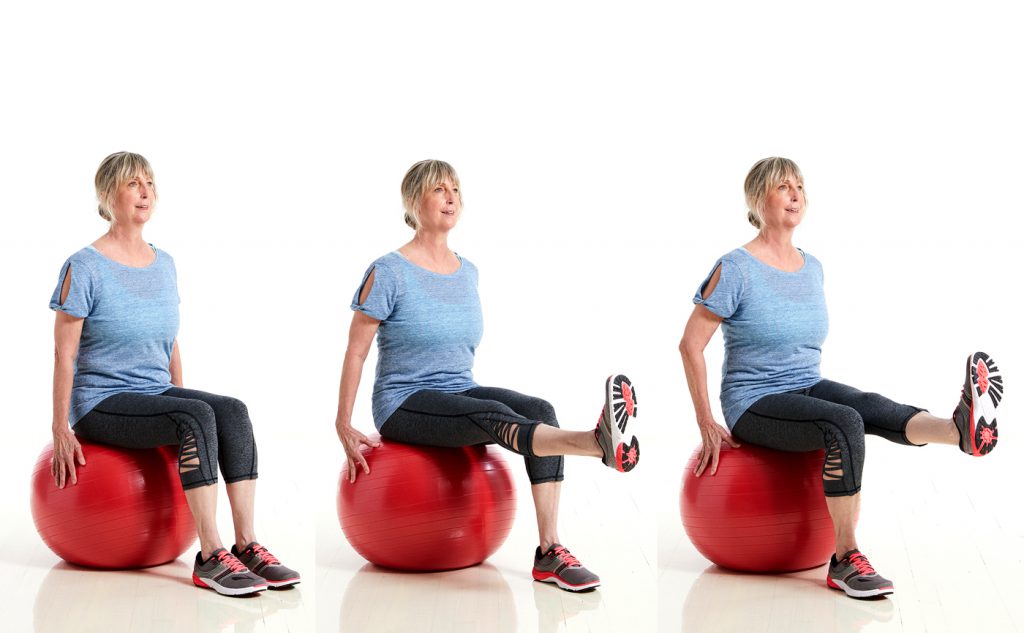
Tone your arms, core, hips, and thighs with a fun routine that uses a variety of fitness balls.
By K. Aleisha Fetters, C.S.C.S.
If you attend SilverSneakers classes, you know all about the benefits of fitness balls. They’re one of the most versatile exercise tools you’ll find at the gym or YMCA.
You’ll find a variety of exercise balls—including medicine balls, stability balls, Pilates balls—at most fitness centers. Medicine balls, which come in different weights, are great for resistance training. Stability balls, as the name implies, challenge your stability and balance. And Pilates balls come in a range of sizes and can be used for different purposes, like squeezing them for targeted toning.
This fun circuit uses exercise balls to build total-body strength. Because you’ll be moving quickly from exercise to exercise, you’ll also boost your cardiovascular fitness.
How the Have-a-Ball Circuit Works
Perform one set of each exercise below in order, resting only as needed between moves. After the final exercise, rest 60 to 90 seconds, and then repeat the full circuit again. Start with two rounds total, and gradually work your way up to four as your fitness improves.
Ready to get started? Here’s how to perform each movement. As always, safety is key. The exercises here may be different or more advanced than those you’ll experience in a SilverSneakers class. If you have a chronic condition, balance issues, or injuries, talk to your doctor about how you can exercise safely.
And if this workout doesn’t work for you or you want to mix things up, you have other options as part of the SilverSneakers Million Pound Challenge. You can take a SilverSneakers class or other group fitness class that incorporates strength training, or try this week’s strength move for walkers.
Exercise #1: Medicine Ball Wood Chop
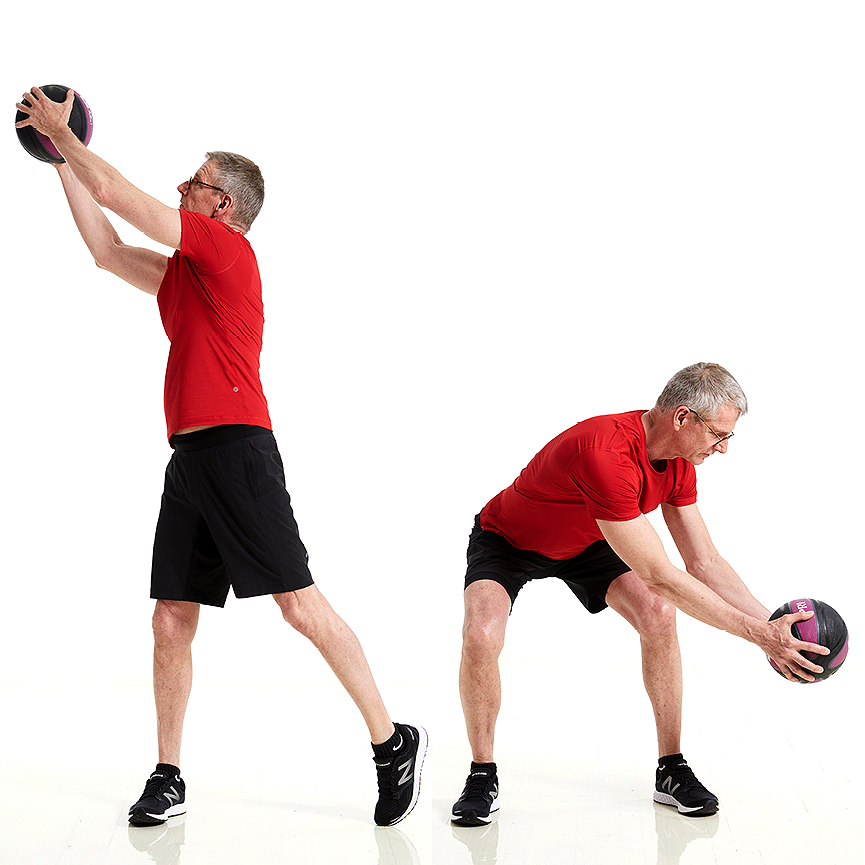
Do 6 to 8 reps per side
Stand with your feet wider than shoulder-width apart, knees slightly bent. Hold the medicine ball in both hands, and keep your arms straight. Inhale as you lift the ball diagonally across your body, ending twisted to the right with arms above your head. Allow your feet to pivot as you twist.
As you exhale, rotate at your waist and lower the ball to the left so your hands are outside your left knee. Pause, then slowly reverse the movement to return to start. That’s one rep. Perform six to eight reps, then repeat on the opposite side.
Exercise #2: Stability Ball Leg Lift
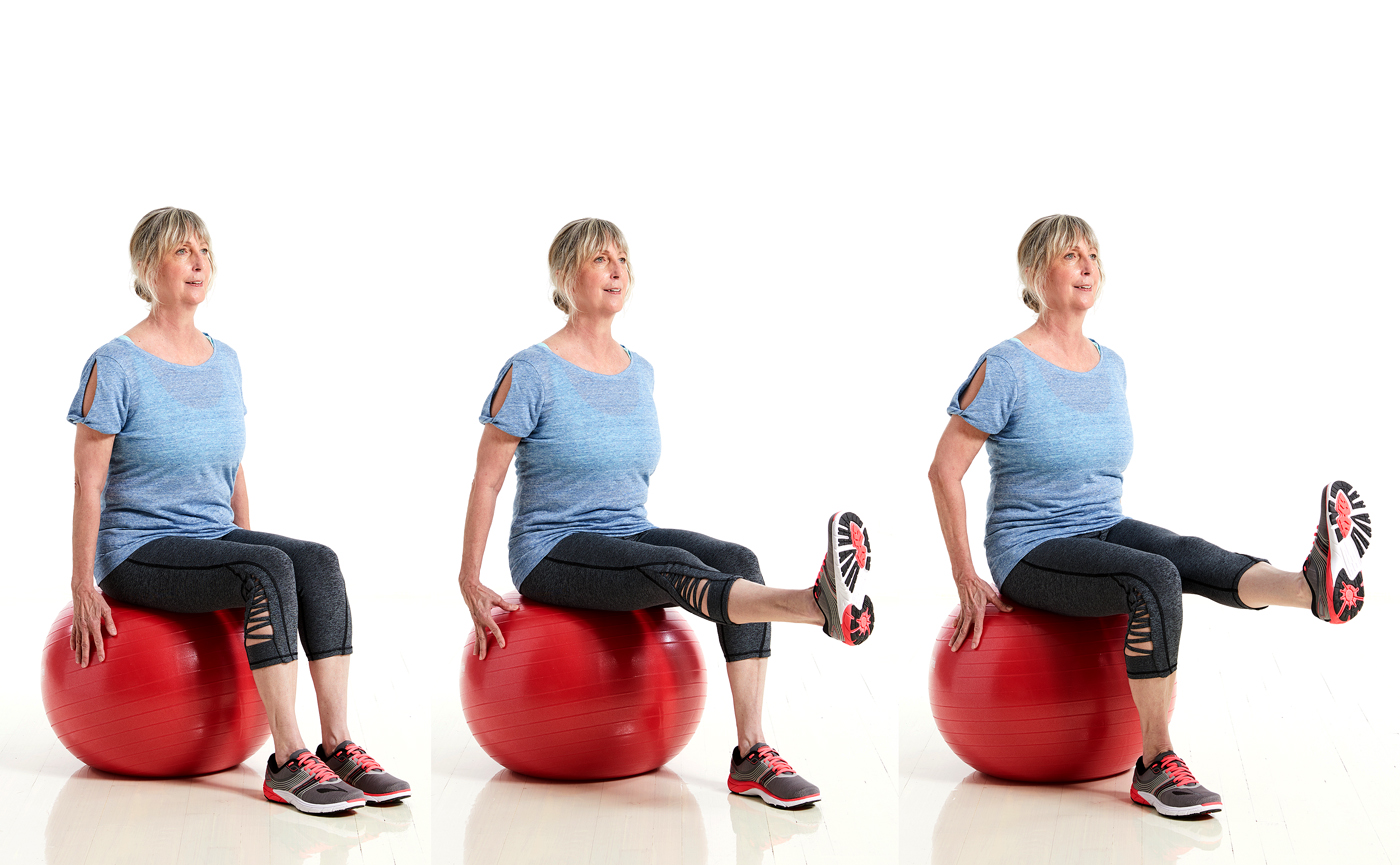
Do 8 to 12 reps
Sit tall on a stability ball with your legs hip-width apart and feet flat on the floor. For more balance, spread your feet wider. Brace your core to help stabilize your body. This is your starting position.
From here, use your abdominal muscles to lift your right foot off the floor. Start by lifting it just a few inches. If you’re able to maintain good balance, working on lifting it higher until your leg extends straight out from your hip. Pause, then slowly lower your foot to return to start. Repeat with your left leg to complete one rep. Perform eight to 12 reps total.
Exercise #3: Stability Ball Crunch
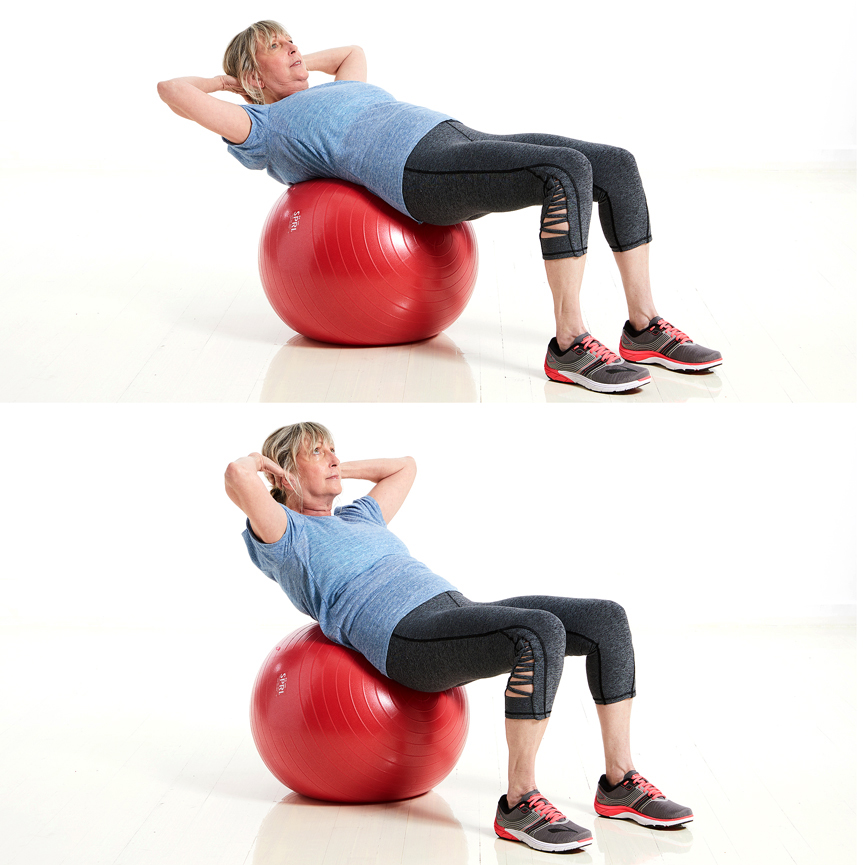
Do 12 to 15 reps
Lie faceup on a stability ball with your feet shoulder-width apart and flat on the floor. Your head and neck should be off the ball. Place your hands gently behind your head for support. This is your starting position.
Subscribe to our newsletter
It's quick and easy. You could be one of the 13 million people who are eligible.
Already a member? Click to discover our 15,000+ participating locations.
Follow Us
From here, engage your abdominal muscles to lift your upper back off the ball, raising until your torso forms a straight line from shoulders to hips. Be sure to lift your upper back, and avoid pulling on or straining your neck. Pause at the top, then slowly reverse the movement to return to start. That’s one rep. Perform 12 to 15 reps total, or as many as you can with proper form.
Performing crunches with your lower back on a stability ball can help you reduce stress on the spine. You’ll want to keep your spine neutral with a small, gradual curve in your lower back. Move slowly and with control, and only lower into each rep as far as you’re able to maintain a neutral spine. If you begin to arch your lower back, you’ve gone too far.
Or try an alternate core exercise: If your doctor has advised against crunches or you feel unsteady on a stability ball, try one of the exercises from the 10-Minute Strong-and-Stable Core Workout.
Exercise #4: Seated Adduction
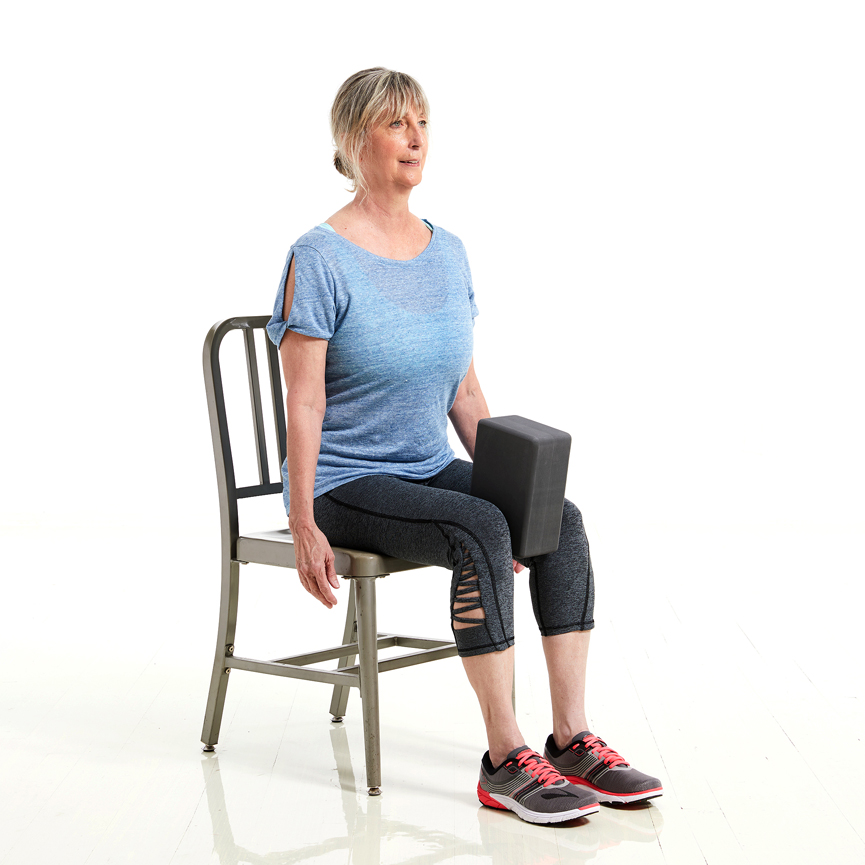
Do 8 to 12 reps
Sit tall on the edge of an exercise bench or a chair with your feet flat on the floor, just a few inches apart. Place an inflatable Pilates ball or a yoga block between your knees, and let your arms hang down to your sides. This is your starting position.
From here, squeeze your knees together as hard as possible, keeping your feet flat on the floor as you do so. Pause, then slowly relax your inner thighs to return to start. That’s one rep. Perform eight to 12 reps, or as many as you can with proper form.
Looking for more fitness ball exercises? Watch the video below.
 Find a Location
Find a Location

